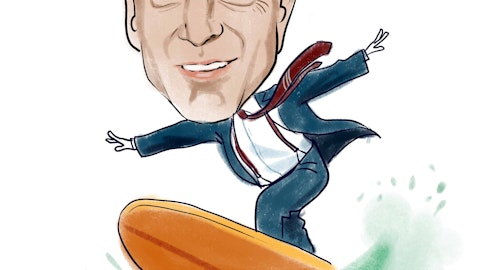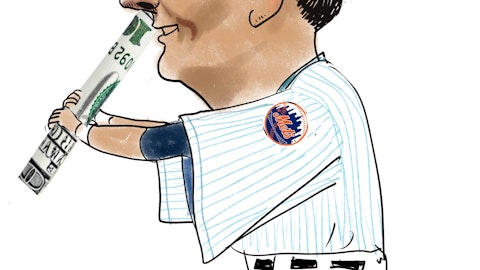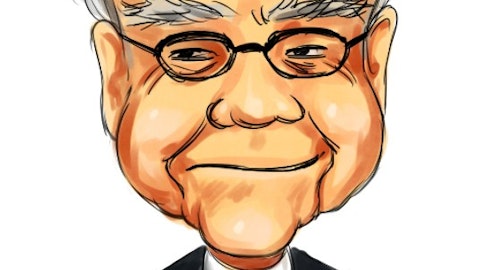Michael J. De La Merced and Andrew Ross Sorkin wrote an article about Dan Loeb and Bill Ackman yesterday. Andrew Ross Sorkin is pretty close to Ackman and talked to him about his JC Penney (NYSE:JCP) investment extensively on CNBC. However, we have a feeling that he doesn’t like Ackman that much because he wasn’t very nice to Bill Ackman a couple of months ago on CNBC . Another reason that makes us think ARS doesn’t like Ackman is this sentence from yesterday’s Dealbook article:
He is also bullish on a turnaround at J. C. Penney, bringing in the former Apple retail chief Ron Johnson. But since his first investment in late 2010, Penney’s stock has fallen 31 percent.
This is DEAD WRONG.
The truth is that Ackman’s loss from his “first investment in late 2010” is 8%, not 31% as Andrew Ross Sorkin claims.
Here’s why we know ARS is wrong…
In the article Andrew Ross Sorkin implies Ackman first bought JCP at around $27.50. According to this Deal Journal article dated October 11, 2010,
From Aug. 17 through Aug. 26, Pershing Square accumulated just under 11.6 million shares of Penney at an average cost of about $20.63 apiece, putting Mr. Ackman just below the 5% threshold requiring stake disclosure. There Mr. Ackman waited, undetected, for more than a month while evaluating his target and contemplating the next move.
Then, on Sept. 28, the hedge fund negotiated an over-the-counter “call” option with a counterparty that allowed it to buy four million shares, between then and Dec. 27, at just $12.24 apiece. That took his potential ownership to federal filing territory.
Pershing Square paid $12.86 apiece for these options, and because it exercised them early it pocketed a fee that lowered the average exercise price to $12.04 apiece, making its total purchase price for those four million shares $24.90 apiece.
Mr. Ackman then, operating in secrecy under the 10-day window investors are given to file the initial ownership documents, went on a buying binge.
All told, Pershing Square paid about $903 million for its entire Penney position, and just its common stock alone is already worth more than $1.14 billion following Friday’s run-up on the news.

Ackman spent $903 million for the entire JCP position and what did he get in return? According to his 2010Q4 13-F filing, Ackman had 34.9 million common shares and 4.2 million call options. This CNN Money writer assumed that call options are identical to common shares and calculated an average price of around $23 for Ackman’s gigantic position in JCP. This is a wrong estimate too (on the low side). However, even if we assume that Ackman’s 4.2 million share call option position is worthless, the average cost of Ackman’s JCP position COULD NOT be more than $25.86.
In case you don’t know math well enough to understand our calculations, consider this – last October at the Value Investing Conference Bill Ackman stated that his average cost of the JCP position is $25 per share (however this estimate probably includes later purchases by Ackman – some of which were made when the stock was trading as high as $38 a piece).
Andrew Ross Sorkin is clearly wrong about Ackman’s loss in J.C. Penney. Ackman’s initial cost was less than $21. The average cost for Ackman’s entire position is probably less than $25 and that’s only because he decided to triple his initial investment. Ackman’s loss from his initial position is 8%, not 31% as Andrew Ross Sorkin claims. Ackman’s loss from his entire position is 24%, still less than the 31% “estimated” by Andrew Ross Sorkin.






